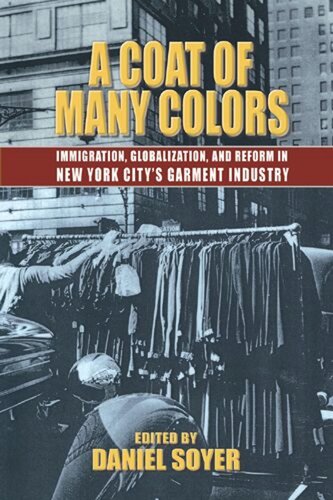

Most ebook files are in PDF format, so you can easily read them using various software such as Foxit Reader or directly on the Google Chrome browser.
Some ebook files are released by publishers in other formats such as .awz, .mobi, .epub, .fb2, etc. You may need to install specific software to read these formats on mobile/PC, such as Calibre.
Please read the tutorial at this link: https://ebookbell.com/faq
We offer FREE conversion to the popular formats you request; however, this may take some time. Therefore, right after payment, please email us, and we will try to provide the service as quickly as possible.
For some exceptional file formats or broken links (if any), please refrain from opening any disputes. Instead, email us first, and we will try to assist within a maximum of 6 hours.
EbookBell Team

4.4
22 reviewsFor more than a century and a half—from the middle of the 19th century to the end of the 20th—the garment industry was the largest manufacturing industry in New York City, and New York made more clothes than anywhere else. For generations, the industry employed more New Yorkers than any other and was central to the city’s history, culture, and identity. Today, although no longer the big heart of industrial New York, the needle trades are still an important part of the city’s economy—especially for the new waves of immigrants who cut, sew, and assemble clothing in shops around the five boroughs. In this valuable book, historians, sociologists, and economists explore the rise and fall of the garment industry and its impact on New York and its people, as part of a global process of economic change. Essays trace the rise of the industry, from the creation of a Manhattan garment district employing immigrants from nearby enements to the contemporary spread of Chinese-owned shops in cheaper neighborhoods. The tumultuous history of workers and their bosses is the focus of chapters on contractors and labor militants and on the experiences of Italian, Chinese, Jewish, Dominican, and other ethnic workers. The final chapter looks at air labor, social responsibility, and the political economy of the offshore garment industry.